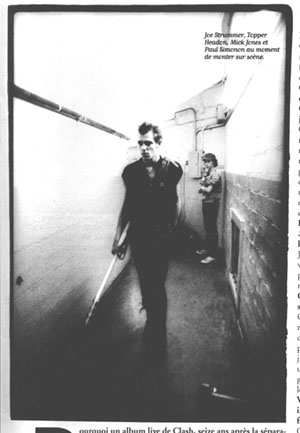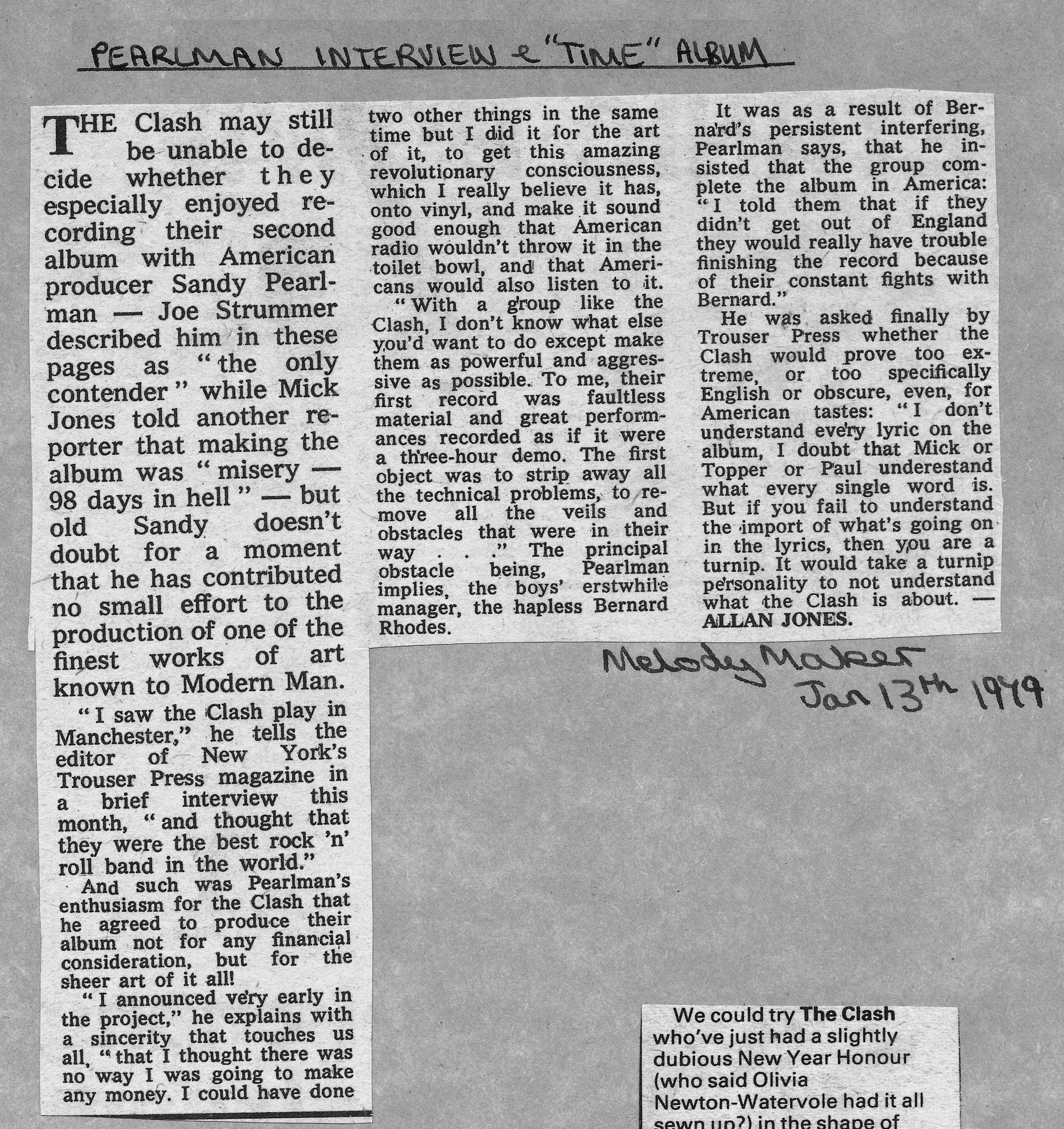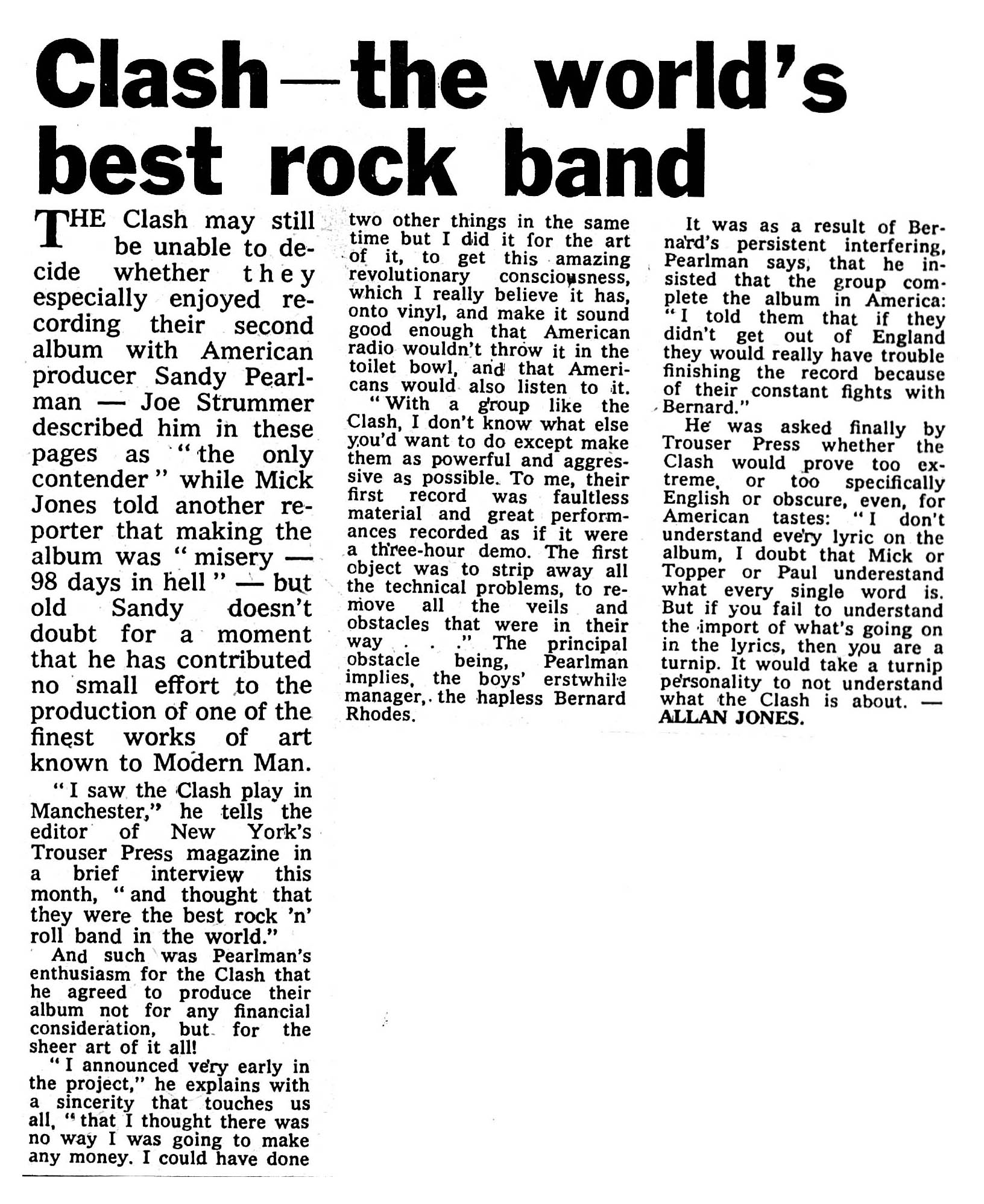

Jun 76 - Black Swan , five piece ....
Sept 76 - 100 Club, London gigs ....
Dec 76 - Anarchy Tour ....
Jan / Mar - Early 77 Gigs ....
May 77 - White Riot UK Tour ....
Jul 77 - European Dates ....
Oct 77 - Out of Control UK Tour ....

Jan 78 - Sandy Pearlman UK Dates ....
Apr 78 - UK Festival Dates ....
Jul 78 - Out on Parole UK Tour ....
Oct 78 - Sort it Out UK Tour ....
Feb 79 - Pearl Harbour US Tour ....

Jul 79 - Finland + UK dates ....
Sep 79 - Take the Fifth US Tour ....
Dec 79 - Acklam Hall Secret Gigs ....
Jan 80 - 16 Tons UK Tour ....
Mar 80- 16 Tons US Tour ....
May 80 - 16 Tons UK/Europe ....

May 81 - Impossible Mission Tour ....
Jun 81 - Bonds Residency NY ....
Sep 81 - Mogador Paris Residency ....
Oct 81 - Radio Clash UK Tour ....
Oct 81 - London Lyceum Residency ....

Jan 82 - Japan Tour ....
Feb 82 - Australian Tour ....
Feb 82 - Hong Long & Thai gigs ....
May 82 - Lochem Festival ....
May 82 - Combat Rock US Tour ....
July 82 - Casbah Club UK Tour ....
Aug 82 - Combat Rock US Tour ....
Oct 82 - Supporting The Who ....
Nov 82 - Bob Marley Festival ....
May 83 - US Festival + gigs ....

Jan 84 - West Coast dates ....
Feb 84 - Out of Control Europe ....
Mar 84 - Out of Control UK ....
April 84 - Out of Control US Tour ....
Sep 84 - Italian Festival dates ....
Dec 84 - Miners Benefit Gigs ....
May 85 - Busking Tour ....
Jun- Aug 85 - Festival dates ....
Sept 85 - European Tour ....
Jan 86 - Far East Tour ....

1986 onwards - Retrospective


74-76 - Joe with the 101ers ....

Jul 88 - Green Wedge UK Tour
Aug 88 - Rock the Rich UK Tour ....

Oct 89 - Earthquake Weather UK ....
Oct 89 - Earthquake Weather Euro ....
Nov 89 - Earthquake Weather US ....

Jun 99 - Comeback Festival dates ....
July 99 - Short US Tour ....
July 99 - UK Tour ....
Aug 99 - Festival Dates ....
Oct 99 - UK Tour ....
Nov 99 - Full US Tour ....
Dec 99 - European Xmas dates ....
Jan 00 - Australasian Tour ....
May 00 - Mini UK Tour ....

Nov 00 - supporting The Who Tour ....
Jul 01 - UK & US Instore Tour ....
Oct 01 - Full US Tour ....
Nov 01 - Japanese Tour ....
Nov 01 - Full UK Tour ....
April 02 - Brooklyn NY Residency ....

Jun 02 - UK Festivals ....
Jul 02 - Hootenanny Tour ....
Aug 02 - UK Festival Dates ....
Sep 02 - Japanesse Dates ....
Nov 02 - Bringing it all Back Home ....
![]()
 |
 |
 |
Audio exists and circulates |
 |
Audio exists but is not in circulation |
 |
No known Audio |
 |
Audio (radio) interview |
 |
Soundcheck |

 |
 |
 |
Video exists and circulates |
 |
Video exists but is not in circulation |
 |
No known Video |

 |
 |
 |
Gig cancelled |
 |
Never took place / bogus date |
 |
Unoffical release |
 |
Offical release |

 |
| Clash pages only - Rated 0-5 for iTunes. How real the sound feels re: the sound you'd hear in the concert hall. |
 to to  Rated 0.5 to 5 for sound (for iTunes) Rated 0.5 to 5 for sound (for iTunes) |
 Unknown generation Unknown generation |
 Master source Master source |
 Low generation (better) Low generation (better) |
 High generation (copied too much) High generation (copied too much) |
 Soundboard Soundboard |
 FM FM |

Here is a list of known articles around the time of the tour.
If you know of anything that is missing please do let us know.
The Clash Official | Facebook
New Clash management
Record Mirror archive 1955-1981
Searchable
Great collection of scanned fanzines from the 1970s and 1980s
When the Clash Finally Played Their First U.S. Show
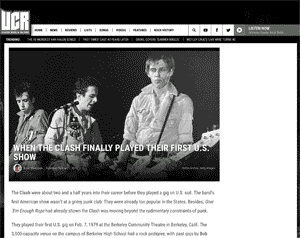 Bryan Wawzenek
Bryan Wawzenek
Published: February 7, 2019
Ultimate classic Rock
Text and Archive PDF
The Clash were about two and a half years into their career before they played a gig on U.S. soil. The band’s first American show wasn’t at a grimy punk club: They were already too popular in the States. Besides, Give ’Em Enough Rope had already shown the Clash was moving beyond the rudimentary constraints of punk.
They played their first U.S. gig on Feb. 7, 1979 at the Berkeley Community Theatre in Berkeley, Calif. The 3,500-capacity venue on the campus of Berkeley High School had a rock pedigree, with past gigs by Bob Dylan, the Who and Jimi Hendrix. ...
Poster
Advert
The Clash's 'Pearl Harbour '79' Tour of North America review
February 17th, 1979. The Clash's 'Pearl Harbour '79' Tour of North America review by Sylvie Simmons and Pics by Bob Gruen. "For the first time in the US I could see the relevance of pogoing"
@sylviesimmons
@bobgruen01
@TheClash
Alternate
Video: Geary Temple in San Francisco
http://www.clashcity.com/boards/viewtopic.php?f=7&t=144
Last night I attended the Target Video show at the Pacific Film Archive in Berkeley (http://www.bampfa.berkeley.edu/film/FN17017). There was a lot of great footage from the '70s & early '80s (Dead Kennedys, Flipper, Black Flag, X, The Nuns, Avengers, The Mutants, Bush Tetras, Siouxsie & The Banshees, etc.), most of which I had never seen before. Target was selling t-shirts (I bought one) in the lobby, and on the back of the t-shirt are logos of bands Target filmed, including The Clash.
I asked Target Video's Joe Rees when and where he filmed The Clash. He replied: a couple of shows, including Geary Temple in San Francisco '79 and at the Target studio on Van Ness. I asked him if the Geary Temple footage was ever released on video in the early '80s, and he said "yes," but I've never heard of that release. One would think it would've showed up on bootleg videos/DVDs, on YouTube, etc., and also Graham doesn't mention the existence of the footage on BMC. It must've been available for a very limited time in '84 when Target Video started releasing videos. Anyway, I told Joe that I hope that Target Video's footage of The Clash will be released on DVD.
Target Video's site: http://www.targetvideo.net
Target Video's MySpace: http://www.myspace.com/targetvideo
Advert
Poster
Sounds Tora! Tora! Clash!
Clash: many sell-outs but no permits

Sounds US Tour Review
Village Voice: The Clash See America Second Most Intense Rock Band Ever
R Christagau
Photo image only, Full text version here
Dolly Parton Impersonators
Tour Photos
Archive PDF here. More Tour photos here
London Evening News The Clash still cut that honest dash
The Baltimore Sun: Clash, British punk group, not so angry on latest album
Edmonton Journal: Rock Talk: Lisa Robinson
LA Weekly: The Clash In L.A.: Just the Best
The Clash – punk band and pround of it
Green Bay Press Gazette
Sun Mar 4 1979
North East Bay Independent and Gazette
British Groups Enliven Rock Music Tradition
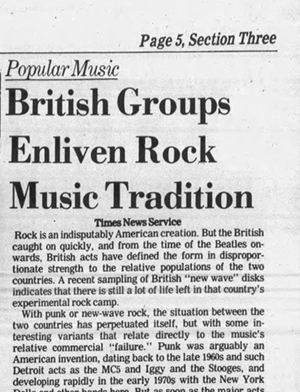 Rutland Daily Herald
Rutland Daily Herald
Sun Jan 14 1979

The Baltimore Sun Punk band touring here, has limited expectations
The Gazette: Lousy Lyrics clash and sound on latest new wave success
'Secret' history of The Clash
Link or PDF archive
penned by Oberlin College assistant dean
Updated Jan 12, 2019; Posted Feb 04, 2015
Doane also is the author of "Stealing All Transmissions: A Secret History of the Clash." The English punk band -- the classic lineup includes Joe Strummer, Mick Jones, Paul Simonon and Nicky "Topper" Headon -- became widely known as "The Only Band That Matters" in the 1980s, influenced a generation of musicians who followed and were inducted into the Rock and Roll Hall of Fame in 2003. Doane recently gave a talk on his book at the Rock and Roll Hall of Fame Archive. Doane spoke with Plain Dealer reporter Michael Heaton. ... more
Clash Crests on New Wave Punk Wave
Even with Elvis Costello's five previously announced concerts, February promised to be an exciting period for rock in Southern California. But now we can look forward to a bonus: The Clash has just been signed for a Feb. 9 appearance at Santa Monica Civic Auditorium.
Tickets for the Clash concert - part of the English band's first U.S. tour - will go on sale Monday. Tickets also go on sale that day for two of Costello's shows: Feb. 14 at the Long Beach Arena and Feb 18 at San Diego's Fox Theater.
Clash: New Import for Rockers
The Los Angeles Times Fri Feb 2
Photo, pass
Active or passive: two rock voices
The Los Angeles Times
Sun Feb 4 1979
Potenet Punk: The Clash Gives 'Em Enought Rope
The Miami Herald – Sun Jan 21 1979
Give 'Em Eought Rope review
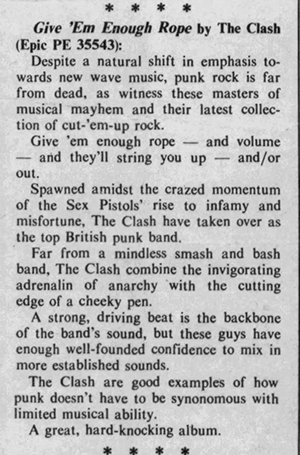 The Ottawa Citizen
The Ottawa Citizen
Fri Feb 9 1979

Q MAG Pearl: The Clash's First Amercian Tour
Link or Text version
Intl Musician mag Mick guitars
Melody Maker: White House Door - On the road with the Clash
NME A Garbled Account of the Clash US Tour by Joe Strummer
Best Magazine 130
Mai 79 Topper Headon or text version
Les InRocks99
Meloday Maker; Sandy Pearlman Interview
Don't have the insides

Clash City Talkers: New York Meets Jones And Co.
Ira Robbins, Trouser Press, June 1979
There's nothing quite as frustrating to watch as the hypocrisy of press, radio, and record companies rushing to get behind some new band that has successfully survived their initial indifference and become some sort of hot property.
The Clash, who couldn't get a record released in America until nearly two years after their first LP was unanimously acclaimed by the English press, suddenly became the darlings of the season when they toured here in February.
Meloldy Maker Clash - the world's best rock band
SOUNDS The Clash In America – Sylvie Simmonds
© Sylvie Simmons, 1979 The Clash In America
Sylvie Simmons, Sounds, 17 February 1979
"SO YOU think we lost the battle then go home and weep about it. Sometimes you ve got to wake up in the morning and think, Fuck it youre going to win the battle. Joe Strummer.
THERE WERE no riots, no outraged citizens, no glaring headlines when Pearl Harbour 79 came to an old elegant building in downtown Vancouver last week. The only report in the newspaper? s music section was that the local symphony orchestra had gone on strike. The Clash? s first American tour is being felt by the press as the stimulating aftershock of the Pistols US invasion a year ago or not at all. ...
Sounds Garry Bushells USA Tour Notes
February 1979
THE CLEANCUT cuddly Clash continue their perillous ' assault on the North Americansub-continent with typkal clearheaded foresight.
Meaning they were actually granted work permits a mere 24 flours before their first single gig in Vancouver last Wednesday, despite losing vast quantities of gear to Canadian custom officials who stripped them of studded bracelets, belts and knives which were taken 'downtown'for destruction.
Experimental Rock. Vigorous in Britain
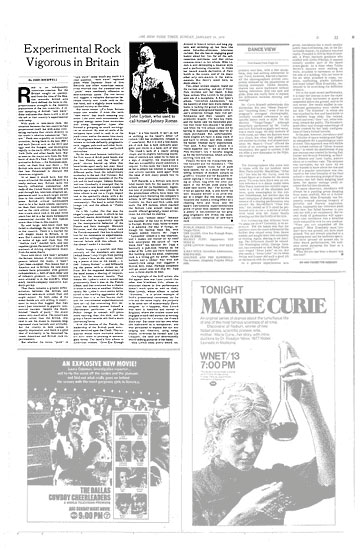 By John Rockwell
By John Rockwell
The New York Times
January 14, 1979,
Section D, Page 35
Rock is an indisputably American creation. But the British caught on quickly, and from the time of the Beatles onwards, British acts have defined the form in disproportionate strength to the relative populations of the two countries. A re- cent sampling of British “new wave” disks indicates that there is still a lot of life left in that country's experimental rock camp.
With punk or new‐wave rock, the situation between the two countries has perpetuated itself, but with some interesting variants that relate directly to the music's relative commercial “failure.” Punk was arguably an American invention, dating back to the late 1960's and such Detroit acts as the MC5 and Iggy and the Stooges, and developing rapidly in the early 1970's with the New York Dolls and other bands here. But as soon as the major acts from the first burst of mid‐70's New York punk rock arrived in Britain—the Ramones especially, on their first tour there — the British new wave erupted with a force that has threatened to obscure the American originals.
Or at least it would have, had the music attracted the music industry in really serious way. Britain lacks the heavily influential commerical AM radio of the United States. Records are sold through key televison program appearances and, to a much larger extent than in this country, through the rock press. British critical tastemakers tend to be a far more trendy, excitable lot than their American counterparts, and so the rock critics’ mass conversion to new‐wave rock in the past three years has led to a far more formidable commercial success for this radical music than it has in this country.
By and large, new‐wave rock has failed to challenge the top of the charts in this country. There is a market for soft, sloppy music in Britain, to be sure. But it seems to be more stratified in terms of age and class than the “mellow rock” market here, and less capable (given the paucity of top‐40 AM stations) of driving progressive music from the sales charts.
Since new‐wave rock hasn't aroused the fervent interest of the commercial powers behind the music, it hasn't (yet) been co‐opted. This means that in America and in Britain the new‐wave rockers have proceeded with greater independence — both of each other and of industry pressure — than rockers were allowed to in the mid‐60's, when every record‐company executive suddenly got hip.
Thus there remains a greater differentiation between the British and American new‐wave scenes than one might expect. On both sides of the ocean bands are still willing to experiment in ways that suggest that they aren't just interested in gigantic commercial success. Despite the muchbruited “death of punk,” the music seems very much alive. The Americans remain artier than the British, who tend to use the music to vocalize longrepressed class hatreds and attitudes. But the vitality in both camps is equally impressive, and there is a good deal of similarity to be discerned between American and British rock experimenters.
But whether the terms “punk” or “new wave” mean much any more is real question. “New wave” replaced punk when Seymour Stein of Sire Records and other American executives worried that the connotations of “punk” were needlessly offensive to mid‐American tastes. The two terms still suggest a valuable distinction between overtly raw, crude rock on the one hand, and a slightly more intellectualized variety on the other.
But some recent LP's from Britain make one wonder if even the term “new wave” has much meaning any more. Like most such movements, the original energy came from musicians and young managerial types who formed a grouping as much sociological as musical. By now all sorts of interlopers have tried to cash in on the punk craze, and at the same time many of the originals have extended their interests to include defiantly progressive rock, reggae, pub‐rock and other form of rhythm-and-blues and early‐rock revivalism.
By far the most famous/notorious of the first wave of Brish punk bands was the Sex Pistols, and the “death of punk” stories heated up When that band broke apart early last year. Since then its various members have pursued different paths, from the industriously workaday to the sad (Sid Vicious). But the most prominent member of the Pistols and its lead singer, Johnny Rotten, laid low. Gradually it emerged that he had formed a new band, and a couple of months ago a single emerged. Now the debut album is out (as a Virgin import now in the speciality shops, with a domestic release on Warner Brothers due imminently). The band is called Public Image Ltd, and the album is “Public Image.”
On it Mr. Lydon (for that was the singer's original name, to which he has reverted) seems determined to put behind him what he apparently regards as the manipulative behavior of the Pistols and their manager, Malcolm McLaren, and the simply brutal rock the Pistols espoused. One has to admire him for his insistence on experimentation and his willingness to court commercial failure with this album. But that doesn't make it a success.
Public Image is a quartet, and theoretically all the members are equal (which doesn't stop Virgin from putting Mr. Lydon's face on the cover, including a poster of him’ on the inside — titled “Johnny Rotten” — and billboarding the poster with a sticker on the front. But the supposed democracy of the band means a’ sharing of responsibility for the musical results. That means Mr. Lydon's voice is mixed less prominently than it was on the Pistols album, and that everyone has a chance to shine in one way or another. Unfortunately, Mr. Lydon's voice seems better suited to the snarling aggression of the Pistols than it is to this fancier skuff, and the instrumental experimentation here isn't all that interesting. Still, Mr. Lydon has already proven himself charismatic performer, so perhaps Public Image in concert will prove more exciting than this disk, and the group's future records will find a more focus.
With the demise of the Pistols, the leadership of the British punk mow.ment devolved upon the Clash. This is quartet whose more excitable admirers have taken to praising in extravagent terms. The band's first album in American release, “Give Em Enough Rope,” is a fine record. It isn't as raw or striking as the band's debut LP (which CBS has stubbornly refused to release here). But it is still a fine example of rock that is both radically energetic and clever in a basic sort of way. The Clash's lack of a really strong singer and its slightly hectoring murkiness of textrure are taken by its fans as a sign of integrity; the implication is that any accessiblity would constitute cop‐out. To this taste, the Clash's music so far is simply too limited in range for real artistic success, quite apart from the issue of how many people buy its records.
Stiff Records is a British new‐wave label known both for the quality of its artists and for its flamboyant, ingenious way of promoting them. Crucial to the promotional efforts have been two package tours featuring the company's artists. In 1977 the talent included Elvis Costello, Ian Dury and Nick Lowe, and such. The 1978 version, which reached the Bottom Line almost intact last month, offered generally lesser attractions, but still had its charms.
One says “almost intact” because one member of the tour in Britain and in Europe, Mickey Jupp, failed to make it to America (for fear of flying), although his backup band did, with largely sodden results. Mr. Jupp's “Juppanese” album is a real charmer, and it makes one realize all by itself how amorphous the notion of “new wave rock” has become. Mr. Jupp is basically a pub‐rock veteran on the order of Mr. Lowe and Dave Edmunds. But building atop his solid, traditional rock is a lilting gift for softer, folkier ballads and a sleepy way with soft country‐rock songs that suggests British Billy Swan. Perhaps somebody will get smart soon and ship Mr. Jupp over to these shores by boat.
One highlight of the Stiff artists who did appear here was Lene Lovich (the other was Wreckless Eric, whose insoucicant charm in live performance doesn't work quite so well on disk). Miss Lovich, whose album is called “Stateless,” is a prime example of Stiff's promotional cleverness. As the title and the name imply, she purports to be some sort of mysteriously Slavic emigree. As it happens, Miss Lovich was born in America and moved to England, where she studied mime and engaged in such odd pursuits as writing English lyrics for Cerrone, the French disco star. She came into her own when she auditioned as a saxophonist, and was persuaded to expand her act into singing and theatrics; using songs mostly co‐written by herself and Les Chappell, the bald and determinedly weird‐looking in her band.
Miss Lovich looks pretty weird, too, dressed in bizarre tatters and long pigtails and screwing up her face like some Saturday‐afternoon television cartoon. But she has an engaging good humor about her, too, for all the selfconscious weirdness, and that virtue remains intact on her album. Miss Lovich is still developing a musical style and a performing character. At times her record sounds derivative of Patti Smith in the vocals, and of too many other arty new‐wavers in the instrumentals. But there's talent here, no doubt about it.
Two other women singers round out the current sampling, and one of them, Poly Styrene and her band, X‐Ray Spex, echoes Miss Lovich in the prominent use of a saxophone. X‐Ray Spex's album, “Germfree Adolescents,” has the liability of other new‐wave debut albums in lacking the group's earlier singles. These underground bands come to one's attention through their live performances and their (usually selfproduced) singles. The fans buy them, and the bands take the honorable position that those fans shouldn't be penalized when the first album comes out by having to duplicate singles they've already purchased. But, unfortunately, those singles are hard to keep track of and hard to obtain, and often contain the bands’ freshest early inspirations. That said, X‐Ray Spex's album is really superior one - not so much for Poly Styrene's raw if forceful singing as for the instrumentals, which are hot, exciting rock-and-roll.
Finally we have the evocatively entitled Siouxsie and the Banshees's “The Scream” (people make fun of punk band names, but as a whole they're as telling symbols of modern culture as graffiti). Siouxsie and the Banshees resisted signing a record deal and making an album long after the other pia neers of the British punk scene had made their moves. But “The Scream,” if not an epochal disk, is still worth the wait. Siouxsie herself is no prize-winner as a singer. But like most of these vocalists she makes a strong effect as chanting force and focus, and the band's instrumental experimentations prove (if proof were needed) that there is plenty of non‐commercial but gripping originality left within the seemingly limited resources of new‐wave rock.
|
|


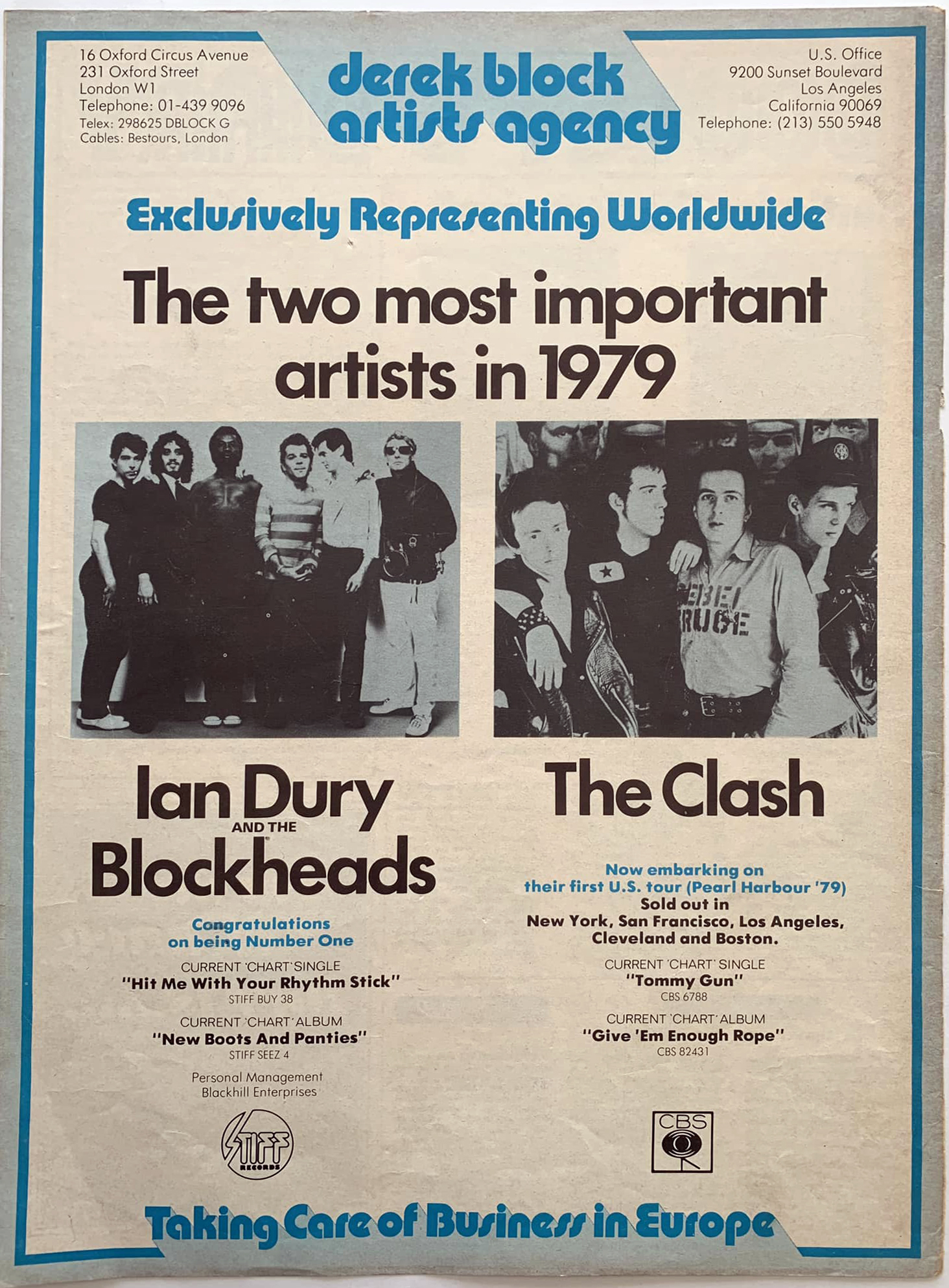



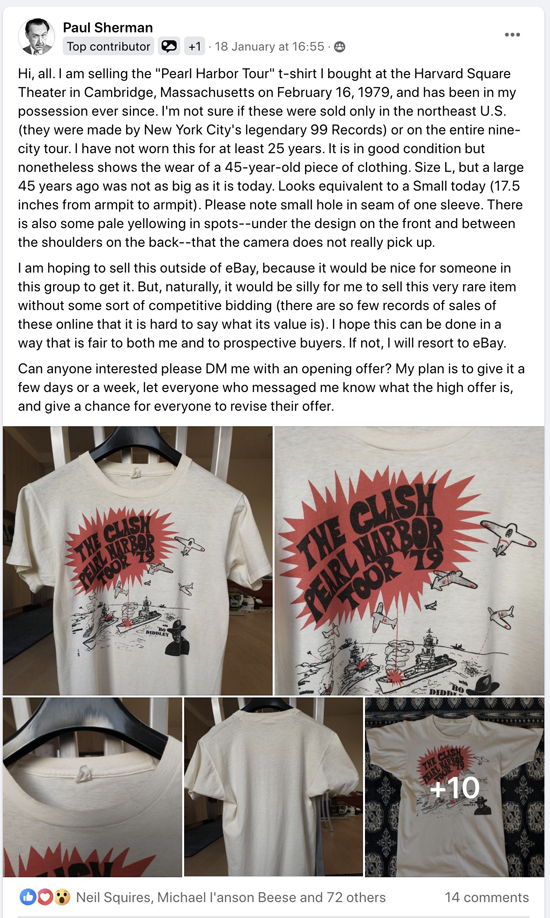
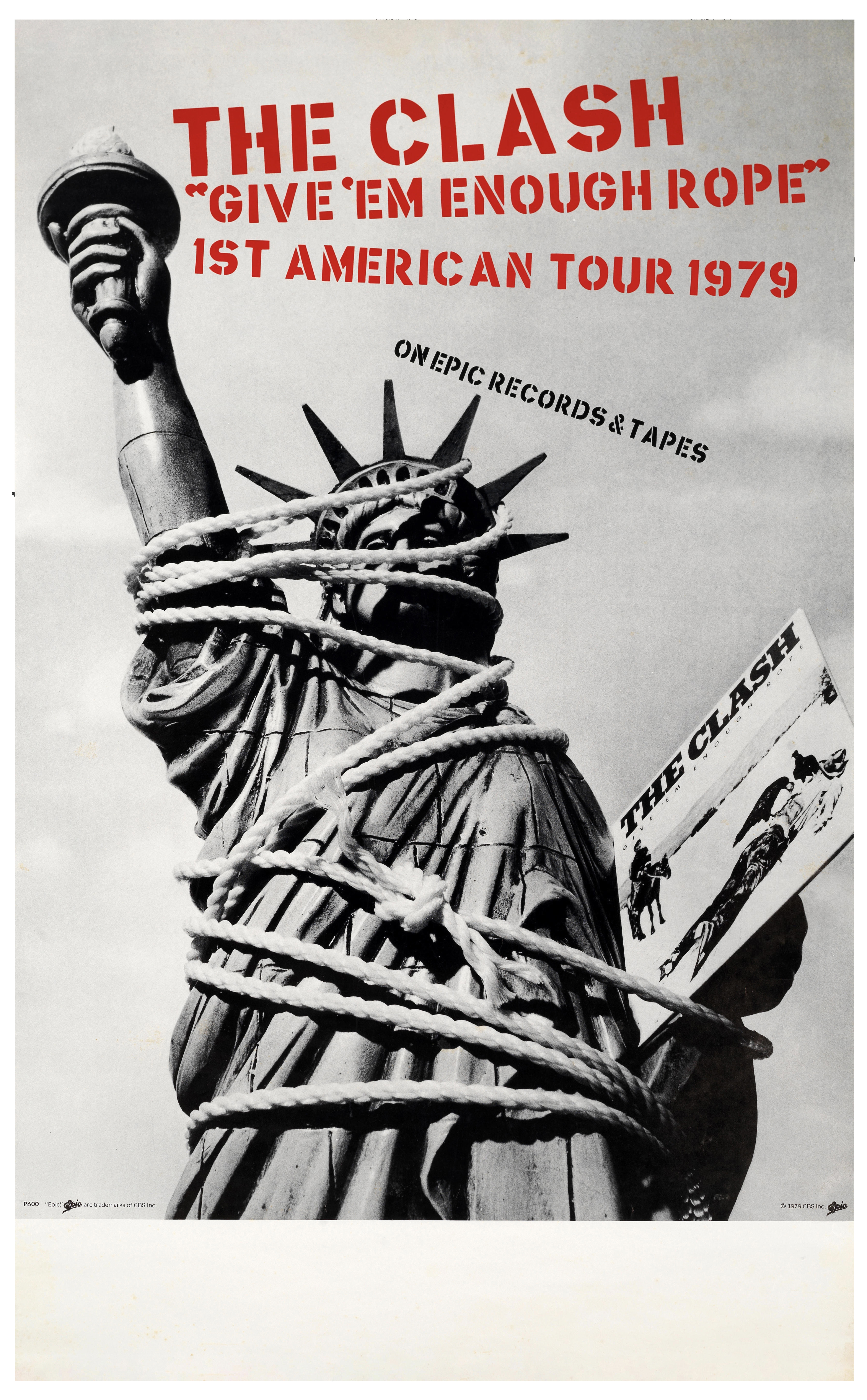
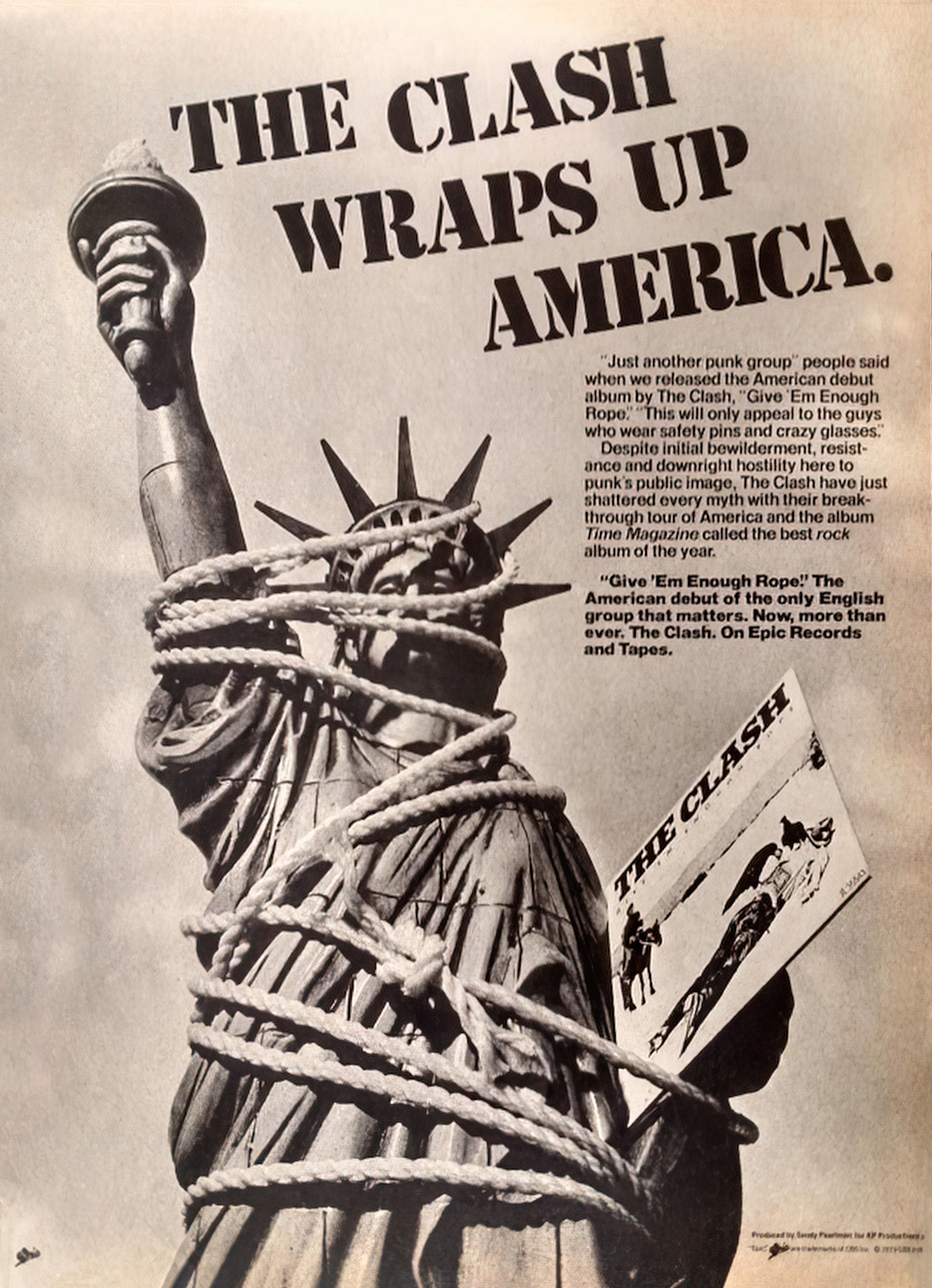
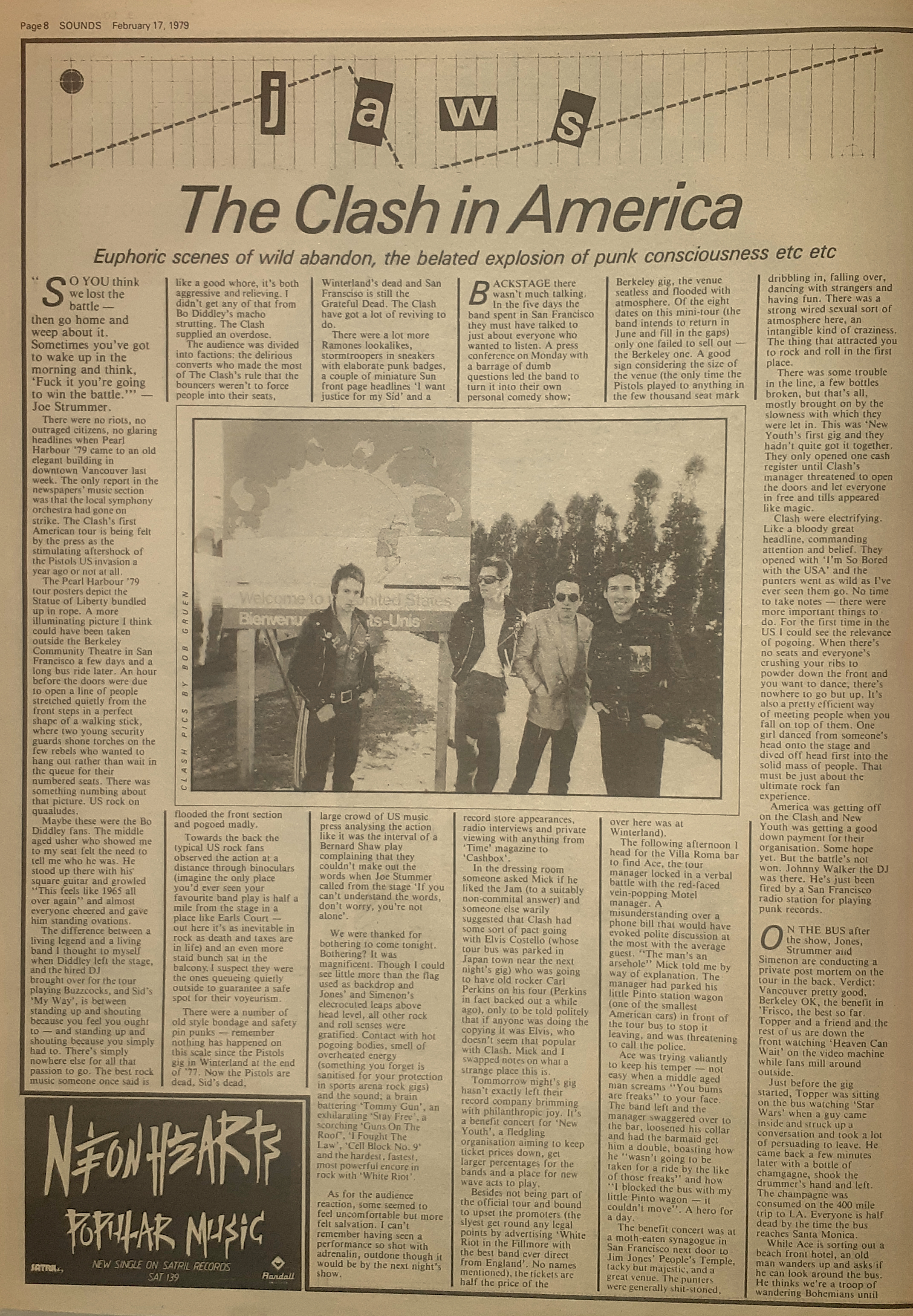
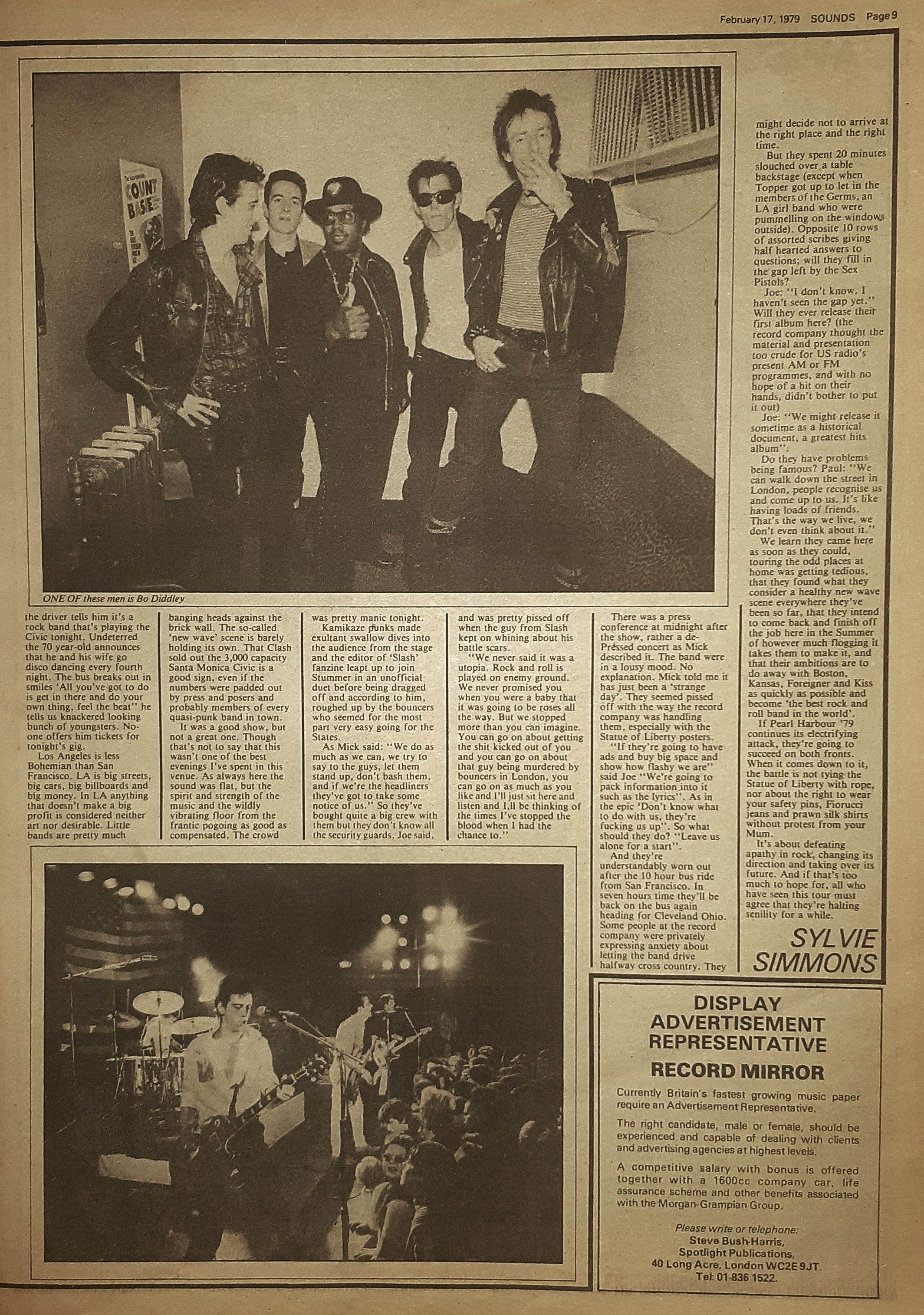


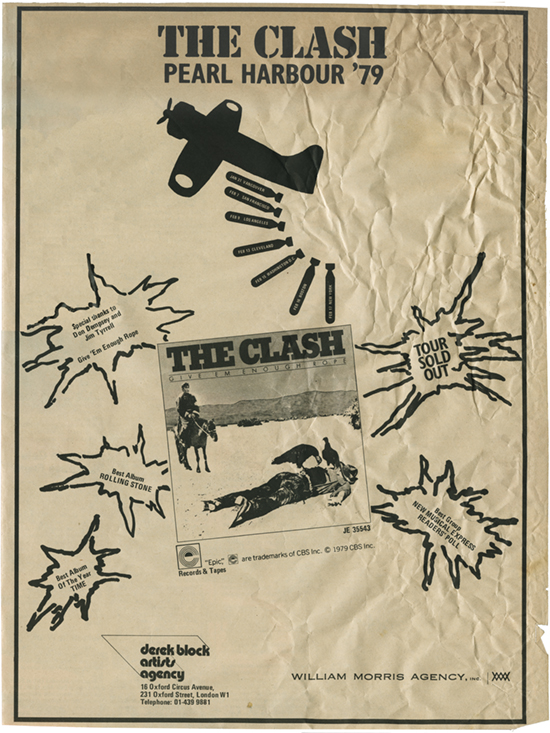
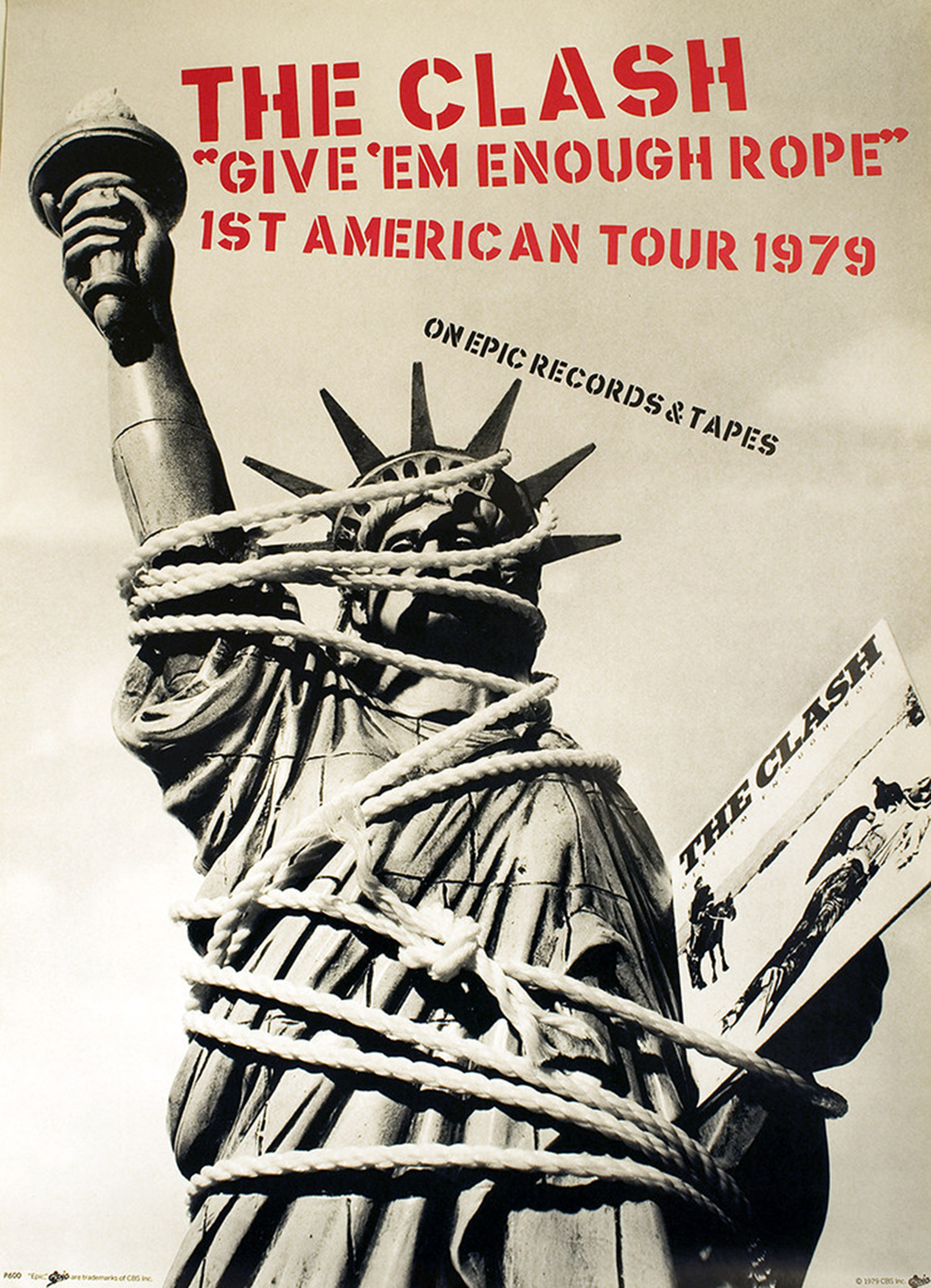

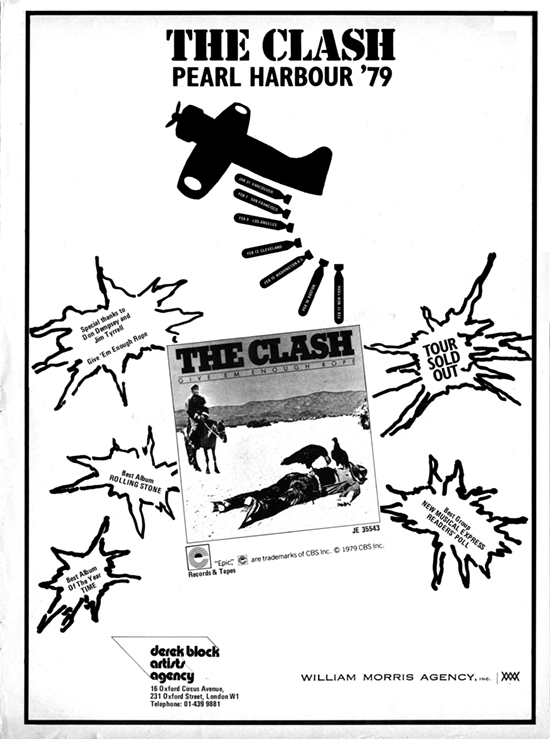
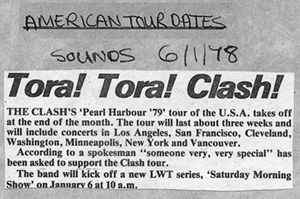
 Link
Link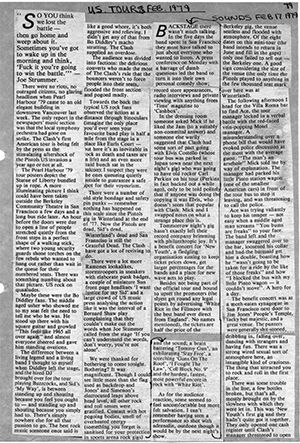
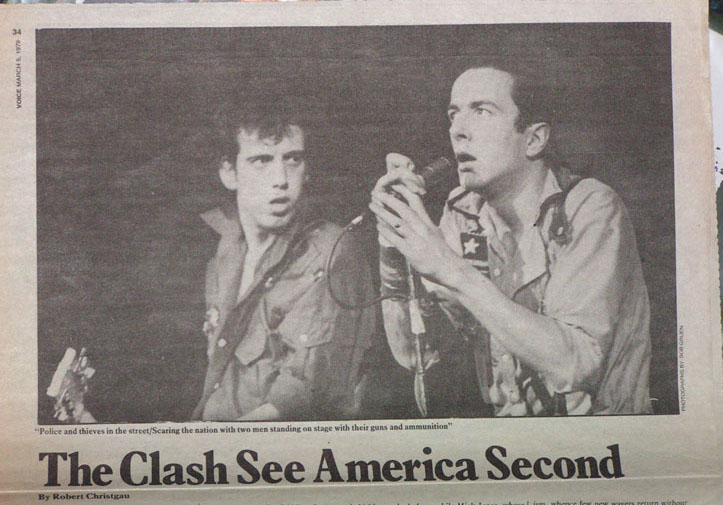
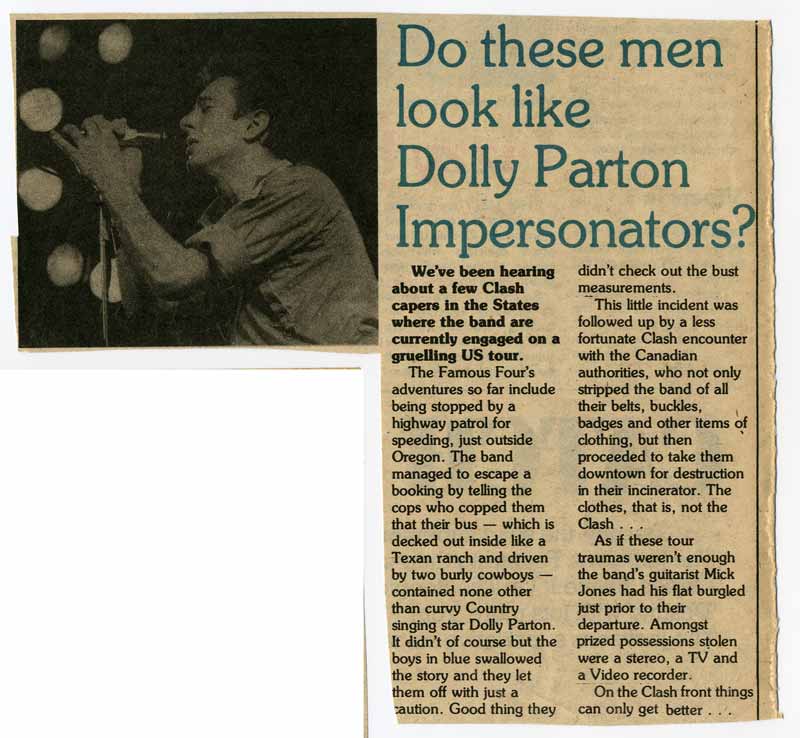
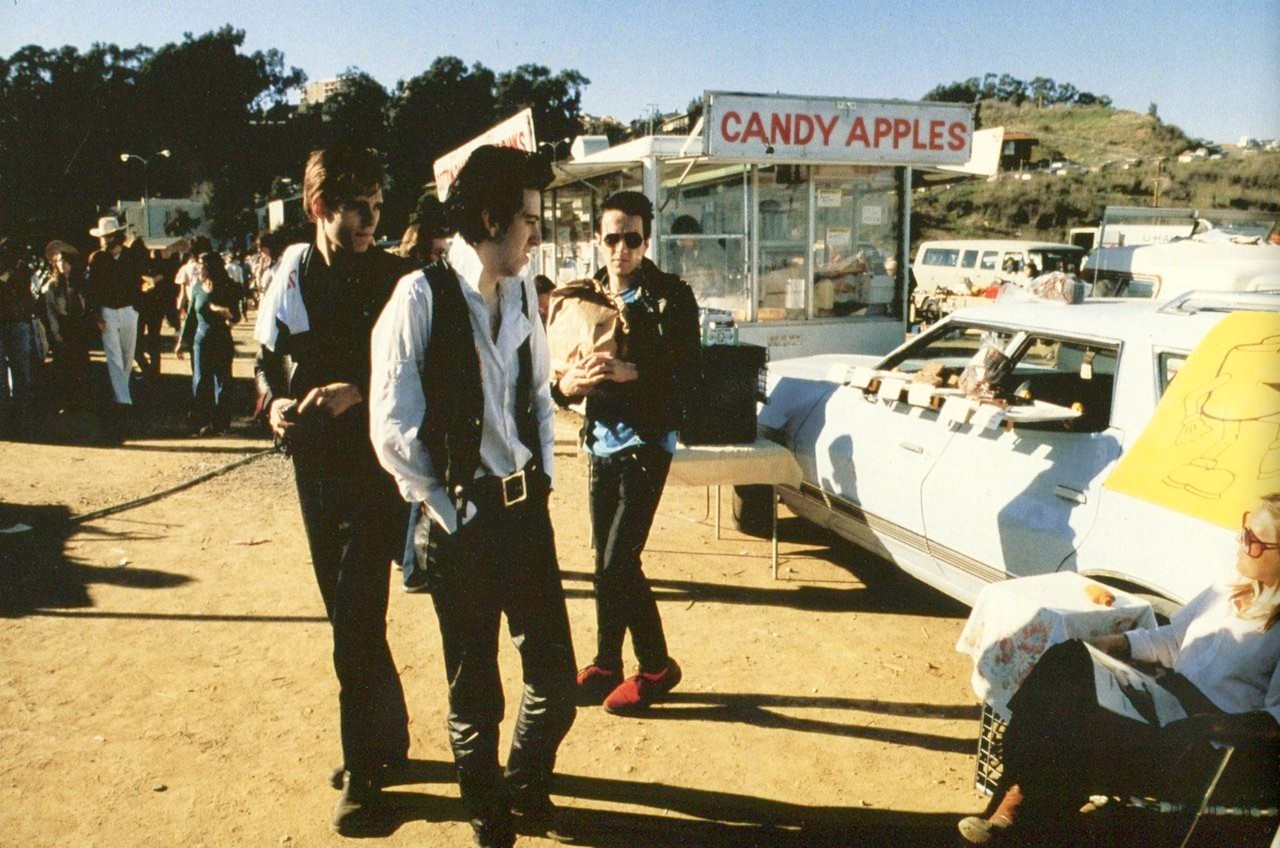
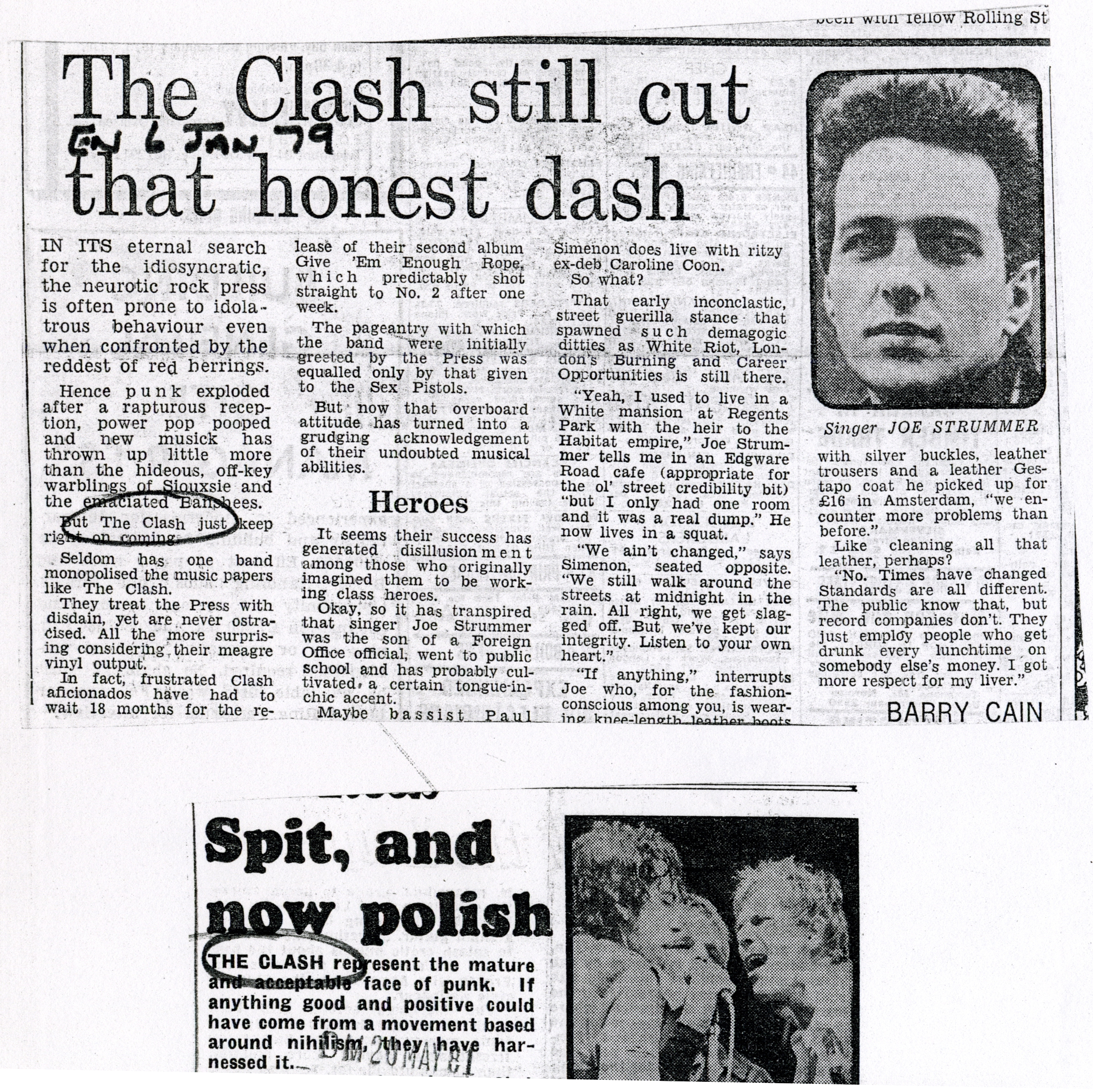
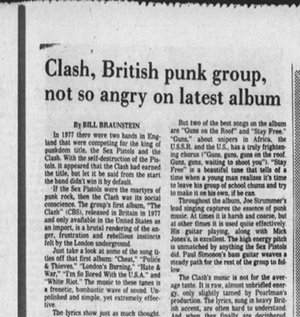
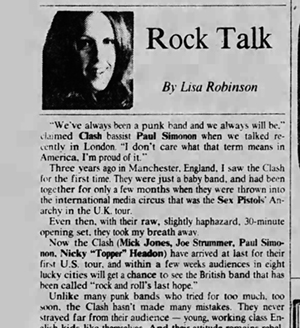
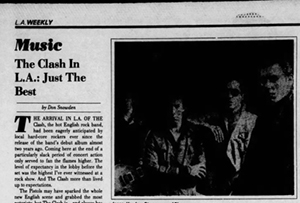
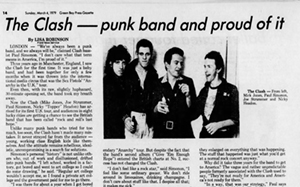
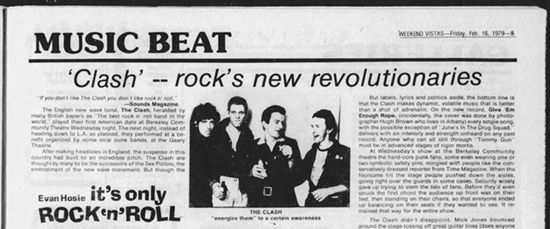
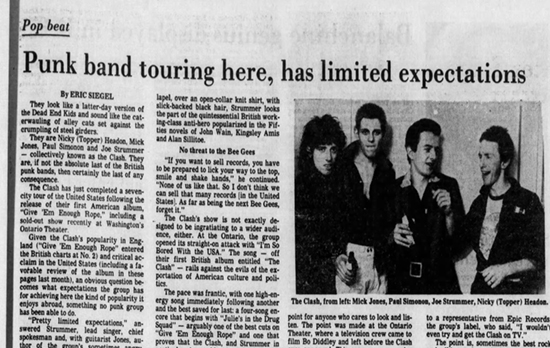
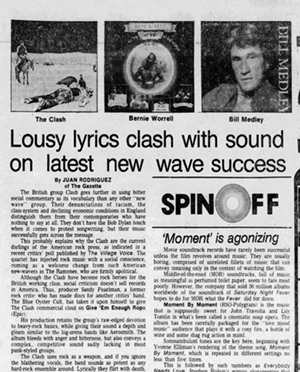
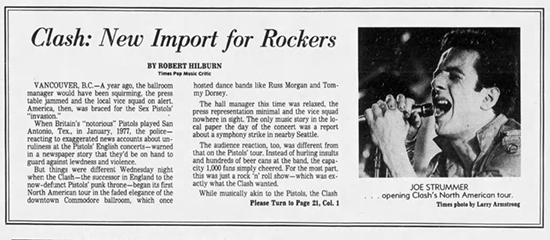


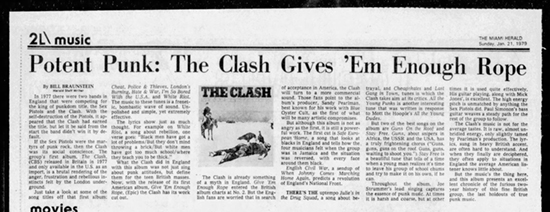
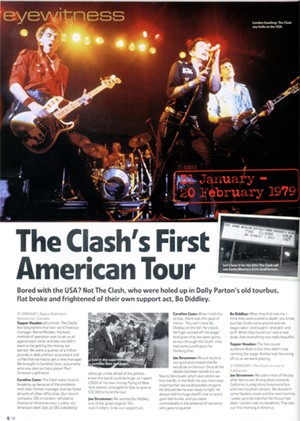
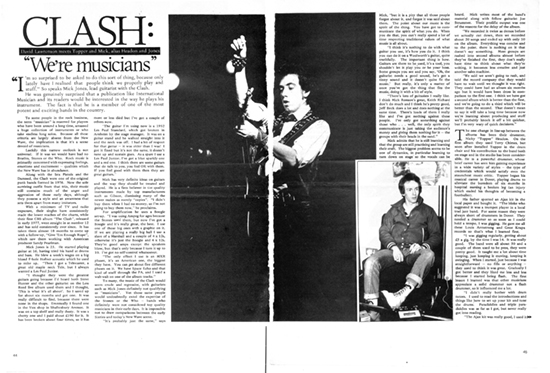
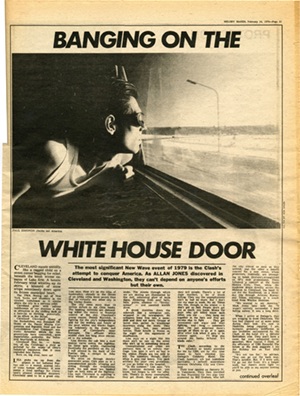
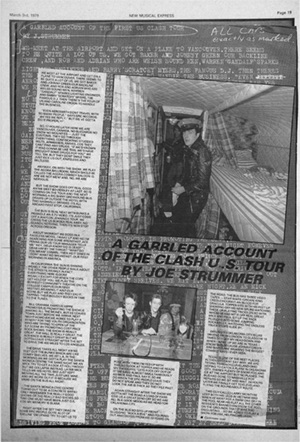
/Page%201%262%20550.jpg)
